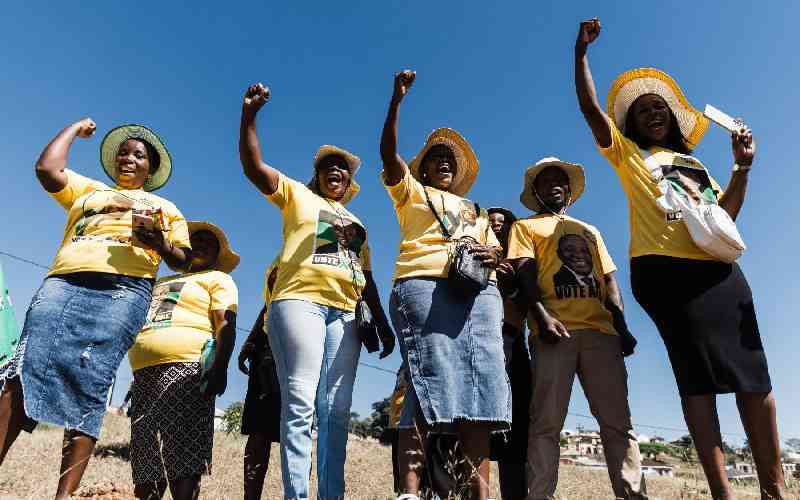“Africa ni moja na binadamu wote ni sawa,” that was Mwalimu Julius Nyarere’s constant refrain as he sought the twin mission of building a socialist Tanzania and liberating Africa from colonial rule and socio-economic deprivation. What this simple saying meant in English was that “Africa is one and all human beings are equal.”
Mwalimu Nyerere lived by what he said: and the Tanzanian nationalist government pursued African and international policies faithful to this dictum in word and deed. In Africa, Nyerere and Tanzania provided leadership for liberating the countries then still under the colonial yoke and racial oppression.
The OAU Liberation Committee was based in Dar es Salaam, and Tanzania paid dearly for this. In international fora, the relatively poor nation of Tanzania and the diminutive figure with a shrill voice called Julius Nyarere were always looked upon to lead the non-aligned nations: Nyerere did not disappoint and Tanzania was highly revered.
It was because of the price that Tanzania was prepared to pay under the visionary and principled leadership of Nyerere that Mozambique, Angola, Guinea Bissau, Namibia, South Africa and even Uganda are where they are today: free, independent, developing and full members of all African and international organisations.
It pains deeply to hear that in the Republic of South Africa, just over a year since Nelson Mandela passed on, South Africans in Durban are turning against fellow Africans and, in a xenophobic mania, butchering them like marauding beasts.
That South Africans should take any joy seeing fellow Africans become Internally Displaced Persons within their country 20 years after liberation from the apartheid regime speaks volumes of the failure of the ANC leadership.
Mind you I am a staunch ANC supporter; if I were South African I would be a card carrying member, but also a “critically correct” and not a “politically correct” one as my late comrade Prof Archie Mafeje would have said.
Let me elaborate. In 2006, under the chairmanship of Prof Adebayo Adedeji, I was a member of the African Peer Review Mechanism (APRM) Team which peer reviewed governance in the Republic of South Africa.
I must commend the government of President Thabo Mbeki for the strong support they gave our team and the warm reception we received everywhere we went.
Beginning from Soweto and travelling throughout the country in poor and working class neighbourhoods, we discovered a growing resentment against “African foreigners” working and living in South Africa, especially those holding working class jobs and engaging in petty trade.
The jobless South Africans, especially those who were never given meaningful education or skills during the apartheid regime, were complaining that “these Africans came here to deprive us of our jobs.”
In a lively discussion in a hall in Soweto, we pointed out to these complaining South Africans that the problem did not lie with these skilled people from Mozambique or Zimbabwe working as masons or plumbers in South Africa, the problem was right at the doorstep of the government which should provide its citizens with appropriate skills to compete in the job market.
Capitalism, we pointed it out, was growing very fast in South Africa as a result of the liberation. But it should be capitalism with a social democratic programme for its people. Becoming xenophobic against fellow Africans was not going to help: adopting a domestic socio-economic programme where wealth creation went hand in hand with job creation was the only viable solution.
A jobless economic growth would only be a fertile breeding ground for xenophobia in South Africa. When we submitted this “critically correct” report to the government of Thabo Mbeki, some people in high echelons of government did not receive it well; they were in denial.
At best they accepted that xenophobia was only an issue within the lumpen proletariat: and the lumpens were not that many, so it was argued.
Stay informed. Subscribe to our newsletter
At worst some denied it completely: xenophobia, it was argued, was un-South African. Hardly two years after submitting our report, racial riots broke out in South Africa: the victims were immigrant Africans from neighbouring countries running away from political intolerance in Zimbabwe or seeking genuine economic opportunities from Mozambique or Namibia.
Today Durban is burning due to a xenophobia inspired conflict. But the ANC regime is not alone in betraying the unity of Africa and the equality of people. For a long time, Kenya has been home to millions of refugees who come and go: from Southern Sudan, Somalia, Uganda, Ethiopia, South Africa, Mozambique, Ruanda, Congo, you name it.
Our hospitality has for a long time earned us the respect from the rest of the world. It is no wonder, therefore, that our soldiers have played an equally important role as peace keepers in countries as distant as former Yugoslavia.
But we are just about to lose this respect, this dignity, this heart to provide a place to feel at home for the homeless and people on the run, i.e refugees. We will lose our dignity if we mistakenly implement the whims of our Deputy President to close refugee camps and throw all God’s children into the wilderness without shoes, clothes, food or a place to feel at home.
Let me say this: closing the refugee camps will not deal with the Al Shabaab problem; it will simply worsen it. Moreover, we cannot simply do it; we are bound by international conventions and our dignified history on the refugee issue.
Our Constitution, moreover, forbids our government from implementing any colonial style “collective punishment” on innocent people. Al Shabaab is recruiting within football clubs: should we banish all football clubs?
They are recruiting among retired, and perhaps pensionless, military personnel: should we get hold of these and herd them together into some hamlets? Even within our own civil service, there are Al Shabaabists: what about them?
Like Shakespeare said through the mouth of King Richard the Second: “No matter where; of comfort no man speaks!” To deal with Al Shabaab, let us follow this route. First, get our soldiers out of Somalia; learn from Obama and not from George Bush after the 9/11 experience. Mr Deputy President, you are reading from the wrong script.
Two, let us follow a “critically correct” security policy. The government should stop talking to itself and listening to the “wise tin tanks” in State House. Political incestuousness breeds little or no wisdom. The government should discuss widely and intelligently with the Opposition, civil society and men and women of good will wherever they may be.
Why do you think the US has so many public policy institutes and think tanks almost in every town? Three, our intelligent network should have informed our government a long time ago that terrorists are not fought through conventional warfare. They are fought through what I may choose to call, for lack of a better phrase, “ intelligent strategies of attrition.”
Seek out their roots of material and human supply with the stealth of a cunning lover, deny them such supply without political hubris that political rookies are so fond of, infiltrate their ranks, co-opt soft elements and avoid profiling that creates the enemies you don’t need. Closing refugee camps will simply create enemies we Kenyans don’t need.
 The Standard Group Plc is a
multi-media organization with investments in media platforms spanning newspaper
print operations, television, radio broadcasting, digital and online services. The
Standard Group is recognized as a leading multi-media house in Kenya with a key
influence in matters of national and international interest.
The Standard Group Plc is a
multi-media organization with investments in media platforms spanning newspaper
print operations, television, radio broadcasting, digital and online services. The
Standard Group is recognized as a leading multi-media house in Kenya with a key
influence in matters of national and international interest.
 The Standard Group Plc is a
multi-media organization with investments in media platforms spanning newspaper
print operations, television, radio broadcasting, digital and online services. The
Standard Group is recognized as a leading multi-media house in Kenya with a key
influence in matters of national and international interest.
The Standard Group Plc is a
multi-media organization with investments in media platforms spanning newspaper
print operations, television, radio broadcasting, digital and online services. The
Standard Group is recognized as a leading multi-media house in Kenya with a key
influence in matters of national and international interest.









